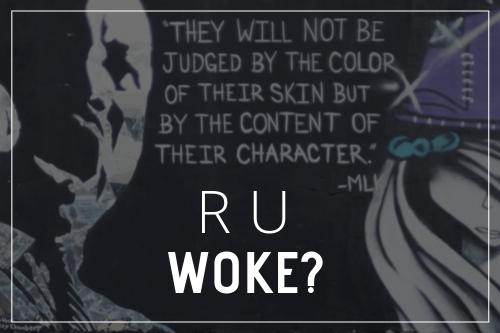
YouTube / iTunes / Spotify / Radio Public / Pocket Casts / Google Podcasts / Breaker / Overcast
Listen to ArtisanEnglish.jp posts & lesson intros here.
Word of the Day: Woke
At first, you may think this is a very simple word: woke, the past tense of wake as in I woke up too early yesterday morning.
I’m sorry to disappoint you, but it’s much more complicated than that.
The idea of being woke is that you are aware of what is happening around you in society.
You are knowledgeable about issues not only in your community or country but also in the world.
There is also an implication that to be woke, you must also be taking action and trying to do something to correct injustices in the world in areas such as racism, environmentalism, and women’s rights.
As far as I can tell, it started with African American slang and became mainstream with the Black Lives Matter movement, although it was first used around 1972.
If I could add a little personal commentary here, it really seems that the youth of the world are woke, whereas their elders are choosing to remain unwoke.
When it comes to climate change, the youth have begun to take the reins and demand changes.
The older and more experienced are supposed to be the ones who set an example for their children.
However, they, no we, have failed.
It’s the young who are woke, and as Greta Thornberg said:
“Since our leaders are behaving like children, we will have to take the responsibility they should have taken long ago.” – COP24, Poland, 4 December 2018
The youth are aware.
They know what’s going on.
They are woke even though their so-called elders choose to remain unwoke.
Flesch-Kincaid Readability Test
This post is understandable by someone with at least a 7th-grade education (age 12).
On the Flesch-Kincaid reading-ease test, this post scores 71.
The higher the score on a scale of 0 – 100, the easier the passage is to read.

